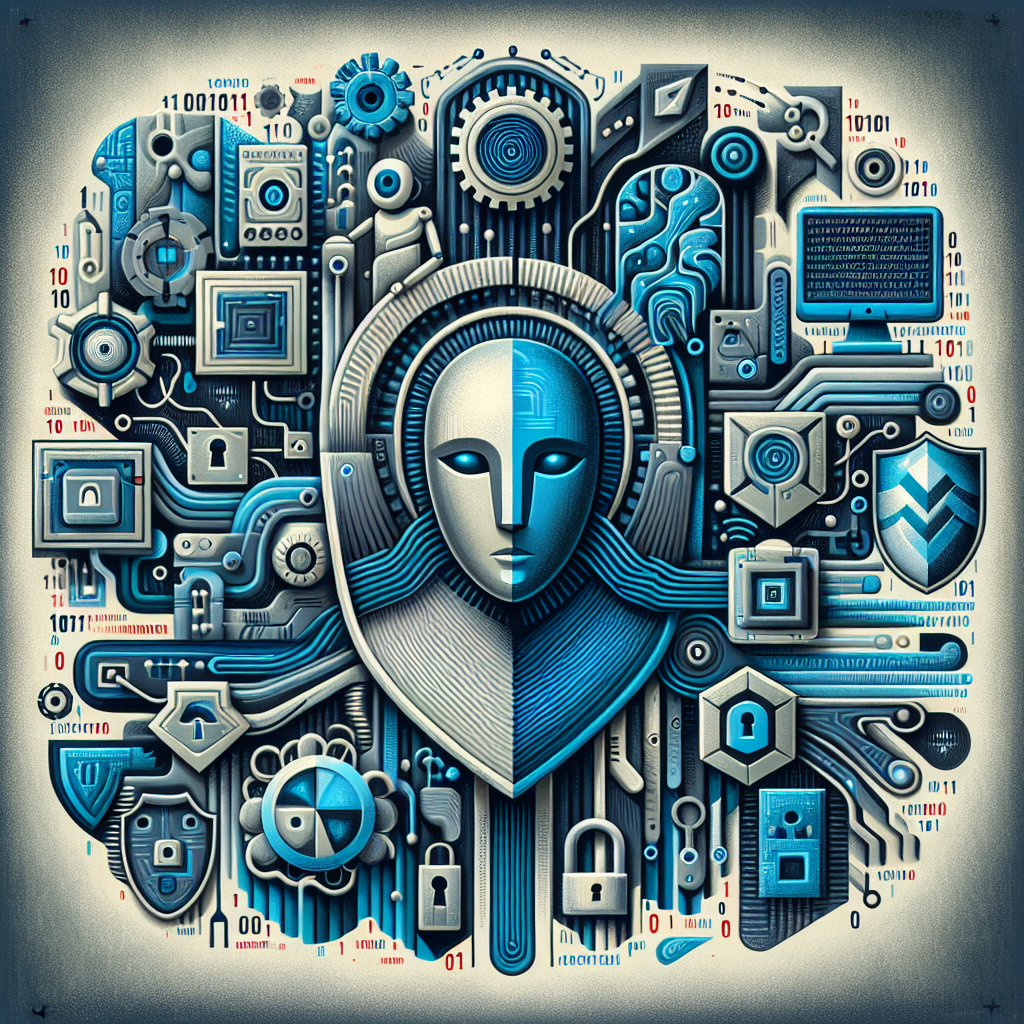Artificial Intelligence (AI) has revolutionized the way we interact with technology and the world around us. From virtual assistants like Siri and Alexa to self-driving cars and facial recognition technology, AI has become an integral part of our daily lives. However, with the increasing use of AI in autonomous systems, concerns about privacy and data security have also grown. In this article, we will explore the intersection of AI and the right to privacy in autonomous systems, and discuss the implications for individuals and society as a whole.
What are Autonomous Systems?
Autonomous systems are machines or devices that can perform tasks without human intervention. These systems rely on AI algorithms to make decisions and execute actions based on data and feedback from their environment. Examples of autonomous systems include self-driving cars, drones, and smart home devices. These systems have the ability to learn from experience and adapt to new situations, making them increasingly sophisticated and capable of performing complex tasks.
The Role of AI in Autonomous Systems
AI plays a crucial role in the development and operation of autonomous systems. AI algorithms are used to process and analyze data from sensors and other sources, enabling autonomous systems to perceive their environment, make decisions, and take actions. Machine learning techniques, such as deep learning and reinforcement learning, are used to train AI models to recognize patterns, predict outcomes, and optimize performance.
The integration of AI into autonomous systems has enabled significant advancements in various industries, including transportation, healthcare, and manufacturing. Self-driving cars, for example, are equipped with AI algorithms that enable them to navigate roads, avoid obstacles, and make split-second decisions to ensure the safety of passengers and pedestrians. Similarly, autonomous drones are used for surveillance, search and rescue operations, and delivery services, thanks to their ability to fly autonomously and follow pre-defined flight paths.
Privacy Concerns in Autonomous Systems
While AI-powered autonomous systems offer numerous benefits, they also raise concerns about privacy and data security. Autonomous systems collect and process vast amounts of data, including personal information, location data, and biometric data. This data is often stored in the cloud or on remote servers, where it can be vulnerable to hacking, data breaches, and unauthorized access.
In the context of autonomous vehicles, for example, self-driving cars collect data on the driving behavior of passengers, including their location, speed, and route preferences. This data can be used to improve the performance of the vehicle and enhance the user experience, but it also raises concerns about the privacy of individuals and the potential for misuse of their personal information.
Similarly, autonomous drones equipped with cameras and sensors can capture images and videos of people and property without their consent. This raises concerns about surveillance, invasion of privacy, and the potential for misuse of the data collected by these devices.
The Right to Privacy in Autonomous Systems
The right to privacy is a fundamental human right that is enshrined in various international treaties and conventions, including the Universal Declaration of Human Rights and the European Convention on Human Rights. The right to privacy protects individuals from arbitrary interference in their private lives, including the collection, processing, and disclosure of their personal information without their consent.
In the context of AI and autonomous systems, the right to privacy is particularly relevant, as these systems have the potential to collect, analyze, and store vast amounts of personal data. Individuals have the right to know how their data is being used, who has access to it, and how it is being protected from unauthorized access and misuse.
To protect the right to privacy in autonomous systems, governments and regulatory bodies have implemented various measures, such as data protection laws, privacy regulations, and guidelines for the responsible use of AI. For example, the General Data Protection Regulation (GDPR) in Europe imposes strict requirements on organizations that collect and process personal data, including obtaining consent from individuals, implementing data security measures, and providing transparency about the use of AI algorithms.
FAQs
Q: How can individuals protect their privacy in autonomous systems?
A: Individuals can protect their privacy in autonomous systems by being aware of the data collected by these systems, reading privacy policies and terms of service, and exercising their rights under data protection laws. They can also use privacy-enhancing technologies, such as encryption and anonymization, to protect their personal information from unauthorized access.
Q: What are the ethical implications of AI in autonomous systems?
A: The use of AI in autonomous systems raises ethical concerns, such as bias in AI algorithms, lack of transparency in decision-making, and accountability for the actions of autonomous systems. Ethical guidelines and frameworks, such as the IEEE Ethically Aligned Design and the AI Ethics Guidelines of the European Commission, provide guidance on the responsible development and deployment of AI in autonomous systems.
Q: How can organizations ensure the privacy and security of data in autonomous systems?
A: Organizations can ensure the privacy and security of data in autonomous systems by implementing data protection measures, such as encryption, access controls, and data minimization. They can also conduct regular security audits, train employees on data privacy best practices, and comply with data protection regulations to protect the personal information of individuals.
In conclusion, the integration of AI into autonomous systems offers numerous benefits, but also raises concerns about privacy and data security. Individuals and organizations must work together to protect the right to privacy in autonomous systems, by implementing data protection measures, complying with privacy regulations, and promoting ethical guidelines for the responsible use of AI. By addressing these challenges, we can harness the potential of AI to improve our lives while safeguarding our fundamental rights and freedoms.

